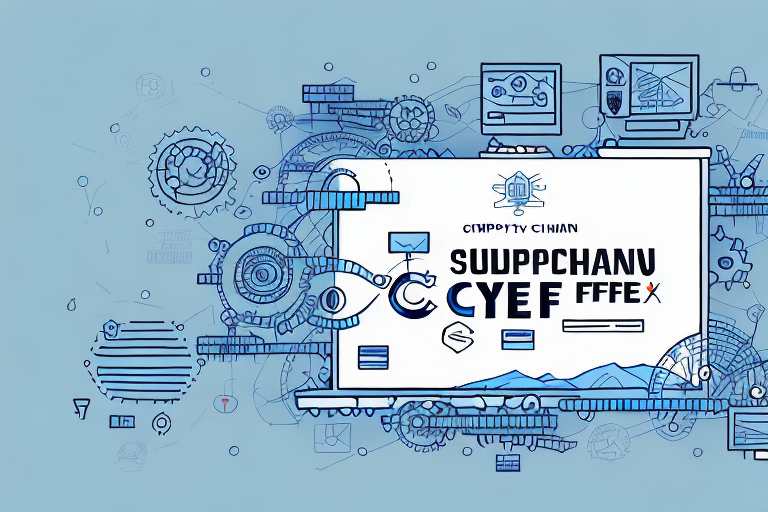If you are involved in international trade, understanding the various fees associated with importing and exporting goods is crucial. One such fee that often goes overlooked is the customs exam fee. This article delves into the essentials of customs exam fees, their impact on your supply chain costs, and strategies to manage them effectively.
Understanding Customs Exam Fees
Definition and Impact on Business
The customs exam fee is a charge imposed by customs authorities when they conduct an inspection or examination of your shipment. This fee is in addition to other import-related charges and can substantially affect your supply chain costs. The examination process may include physical inspections, documentation reviews, X-ray scanning, and other necessary methods to ensure compliance with import regulations.
According to the U.S. Customs and Border Protection, these fees are determined based on the shipment's value and the type of inspection required. Unexpected fees can lead to increased costs and delays, making it essential for businesses to account for them in their budgeting and planning.
Responsibility for Payment
Typically, the importer of record bears the responsibility for paying customs fees, including the exam fee. However, in certain scenarios, the exporter or a customs broker may assume this responsibility. Clarifying who is responsible for these payments beforehand is vital to avoid unforeseen expenses and ensure smooth transactions.
Failure to pay the customs exam fee can result in shipment delays, fines, and penalties, which can disrupt your supply chain and harm your business reputation.
Reasons for Customs Examinations
Common Causes
Customs authorities may select shipments for examination based on several factors, including:
- High shipment value or perceived high risk
- Originating from high-risk countries
- Containing prohibited or restricted goods
- Documentation errors or inconsistencies
- Random selection for quality control
Ensuring compliance with all customs regulations can reduce the likelihood of your shipments being examined.
Impact of Labeling and Packaging
Proper labeling and packaging are critical in preventing additional inspections. Incorrect or insufficient labeling can make it difficult for customs officials to identify the contents of a shipment, leading to further scrutiny and potential delays.
For instance, adhering to the World Trade Organization guidelines on packaging and labeling can facilitate smoother customs clearance processes.
Calculating and Types of Customs Exam Fees
How to Calculate Fees
Calculating the customs exam fee involves understanding the fee structure of the specific country you are importing to. Fees are often based on the shipment's value and the type of inspection required. For example, the U.S. CBP provides detailed fee schedules that can be referenced to estimate costs accurately.
Businesses should consult with their customs brokers or freight forwarders to obtain accurate estimates and incorporate these fees into their overall supply chain budgeting.
Different Types of Fees
Customs exam fees can vary depending on the nature of the inspection:
- Container Examination Fee: Charged when the entire container is inspected.
- Unit Examination Fee: Applied when specific units within a shipment are examined.
- Document Examination Fee: Imposed when shipment documentation is reviewed.
- X-ray Examination Fee: Applicable when X-ray scanning is used to inspect the shipment.
Additionally, some countries may impose extra fees for goods requiring special handling or those deemed hazardous.
Managing Customs Exam Fees
Role of Customs Brokers
Customs brokers are indispensable in managing customs exam fees. They possess expertise in navigating complex customs regulations, preparing necessary documentation, and estimating fees accurately. By partnering with a reputable customs broker, businesses can streamline the customs clearance process and minimize the financial impact of exam fees.
Customs brokers also aid in identifying the most cost-effective inspection methods and negotiating fees with customs authorities when possible.
Strategies to Minimize Impact
Several strategies can help reduce the impact of customs exam fees on your supply chain costs:
- Ensure Compliance: Adhere strictly to all customs regulations to lower the chances of inspections.
- Optimize Shipment Value: Keeping shipment values within certain thresholds may reduce fee liabilities.
- Negotiate Fees: In some cases, it might be possible to negotiate fees with customs authorities.
- Use Bonded Warehouses: Storing goods in bonded warehouses can defer the payment of certain customs fees.
- Employ Customs Bonds: Utilizing customs bonds can help manage the upfront costs associated with fees.
Compliance and Legal Implications
Importance of Compliance
Compliance with customs regulations is paramount in avoiding excessive fees and legal issues. Accurate documentation, correct labeling, and adherence to import/export laws are essential practices for any business involved in international trade.
Resources such as the World Customs Organization provide comprehensive guidelines to help businesses stay compliant.
Legal Risks of Non-Compliance
Non-compliance with customs exam fee regulations can lead to severe consequences, including:
- Fines and penalties
- Shipment delays or seizures
- Legal action against the business
- Damage to business reputation
Therefore, it is crucial to prioritize compliance to mitigate these risks.
Best Practices and Future Trends
Best Practices for Budgeting
To effectively manage and budget for customs exam fees, businesses should:
- Partner with knowledgeable customs brokers
- Understand the specific customs regulations of target countries
- Incorporate fee estimates into overall budgeting
- Maintain accurate and complete shipment documentation
- Communicate transparently with supply chain partners about fee responsibilities
Comparing Fees Across Countries
Customs exam fees can vary significantly between countries. It's essential to research and understand the fee structures of each country you trade with. This knowledge allows for more accurate cost projections and informed decision-making regarding supply chain logistics.
For example, while the U.S. CBP has a detailed fee schedule, other countries may have different methods of calculating fees based on shipment value, type of goods, or inspection intensity.
Future of Customs Exam Fees
The landscape of customs exam fees is continuously evolving, influenced by global trade policies, technological advancements, and changing regulatory frameworks. Trends such as increased use of automation in customs processes and stricter regulatory compliance standards are shaping the future of customs examinations and associated fees.
Staying informed about these trends is essential for businesses to adapt and maintain cost-effective supply chain operations.
Conclusion
The customs exam fee plays a significant role in the importing and exporting process, directly impacting your supply chain costs. Understanding the types of fees, responsible parties, and strategies to manage these costs is essential for any business involved in international trade. By ensuring compliance with relevant regulations and implementing best practices, you can effectively mitigate the financial and operational risks associated with customs exam fees.








